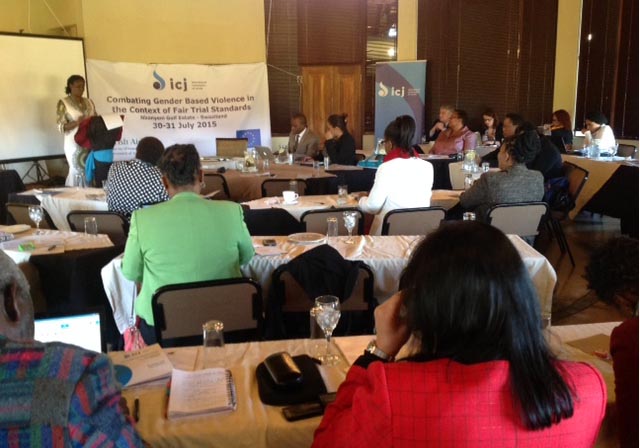
Jul 31, 2015 | News
The ICJ held a colloquium on this issue on 30-31 July. Judges, magistrates, lawyers, members of academia, and civil society leaders from SADC, ECOWAS and the East African Community attended the event.
The Acting Chief Justice of the Kingdom of Swaziland, MCB Maphalala and the Secretary General of ICJ, Wilder Tayler, officially opened the colloquium.
The participants discussed the concept of gender-based violence; the efforts to combat impunity in sexual offences and gender based violence at the national, regional and international level and made recommendations to eliminate the scourge.
One of the key objectives of the workshop was to contribute to the process of enacting sexual offences and domestic violence legislation in Swaziland.
The Sexual Offences and Domestic Violence Bill of Swaziland is before the house of assembly, which has asked stakeholders to submit their views, on what should be included in the law.
The judges, lawyers and civil society leaders had robust and honest discussions touching on effective innovative strategies to combat sexual and gender based violence.
Some of the recommendations included the training of judicial officers to be gender sensitive, changing societal attitudes and prejudices, raising awareness amongst parliamentarians, creative interpretation and application of regional and international standards when adjudicating cases of sexual offences and gender based violence as well as observance of fair trial standards at the national, regional and international level.
The colloquium was made possible with funding from IrishAid.
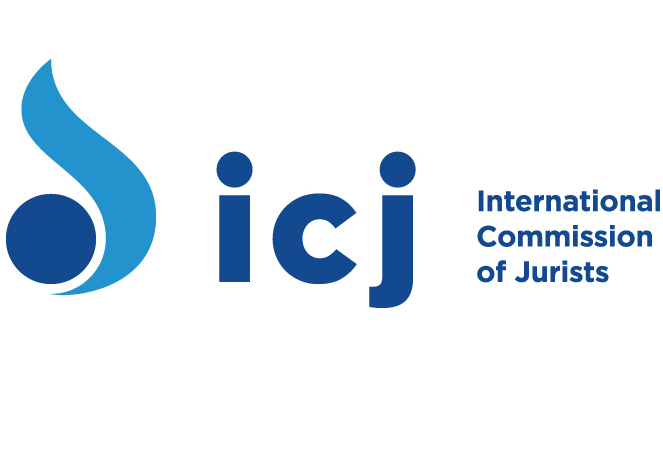
Jul 14, 2015 | Advocacy, Non-legal submissions
Today, the ICJ delivered an oral statement before the Human Rights Committee during a half a day of general discussion in view of the Committee’s ongoing elaboration of a new General Comment on Article 6 (Right to Life) of the International Covenant on Civil and Political Rights.
The ICJ’s oral statement focussed on the following:
- the principles of equality before the law, equal protection of the law and non-discrimination, as well as non-refoulment;
- State Parties’ duty to protect the right to life in respect of conduct of private actors;
- State Parties’ duty to take measures to protect and ensure the right to life in connection with acts of gender-based violence against women and violence against individuals based on their real or imputed sexual orientation and/or gender identity or expression;
- the relationship between the right to life and certain economic, social and cultural rights;
- the extraterritorial reach of the Covenant; and
- the application of Article 6 during situations of armed conflict.
Universal-ICJ oral statement HALF DAY GENERAL DISCUSSION ON GC-Advocacy-2015-ENG (full text in PDF)
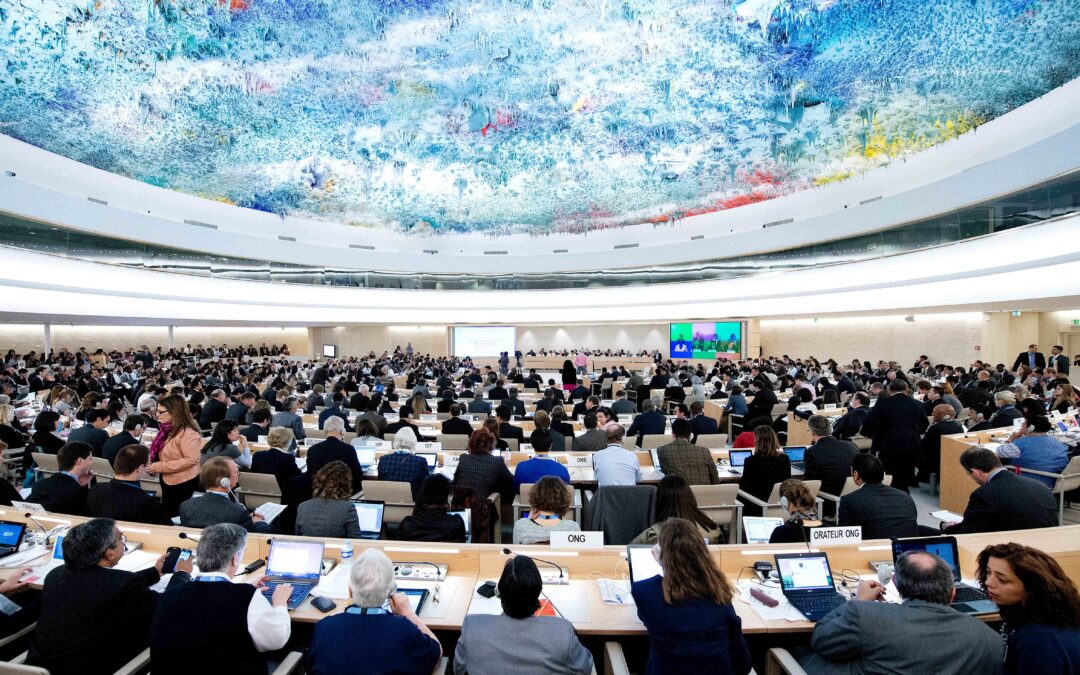
Jul 1, 2015 | Advocacy
Joint statement by the ICJ and Amnesty International after a group of States, led by Egypt, proposed a resolution on “protection of the family” at the ongoing 29th regular session of the UN Human Rights Council.
Bangladesh, Belarus, China, Cote d’Ivoire, Egypt, El Salvador, Mauritania, Morocco, Qatar, the Russian Federation, Saudi Arabia and Tunisia have submitted a seemingly innocuous draft resolution (A/HRC/29/L.25) that, in fact, underhandedly seeks to divert the Council from its institutional mandate focused on the effective promotion and protection of the human rights of the individuals towards protecting the purported rights of a social institution, namely, “the family”.
The full statement can be downloaded here: Universal-ICJ+AI statement on protection of the family-Advocacy-2015-ENG (in PDF)
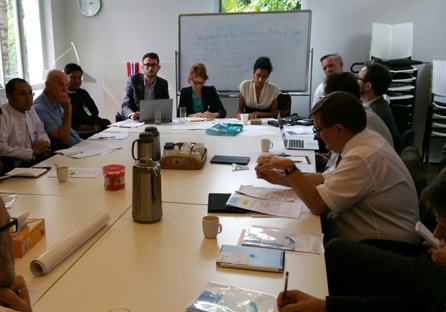
Jun 9, 2015 | News
The ICJ today organized a diplomatic dialogue, in advance of the Universal Periodic Review (UPR), with ambassadors and high-level diplomatic representatives, to share the state of human rights in Myanmar.
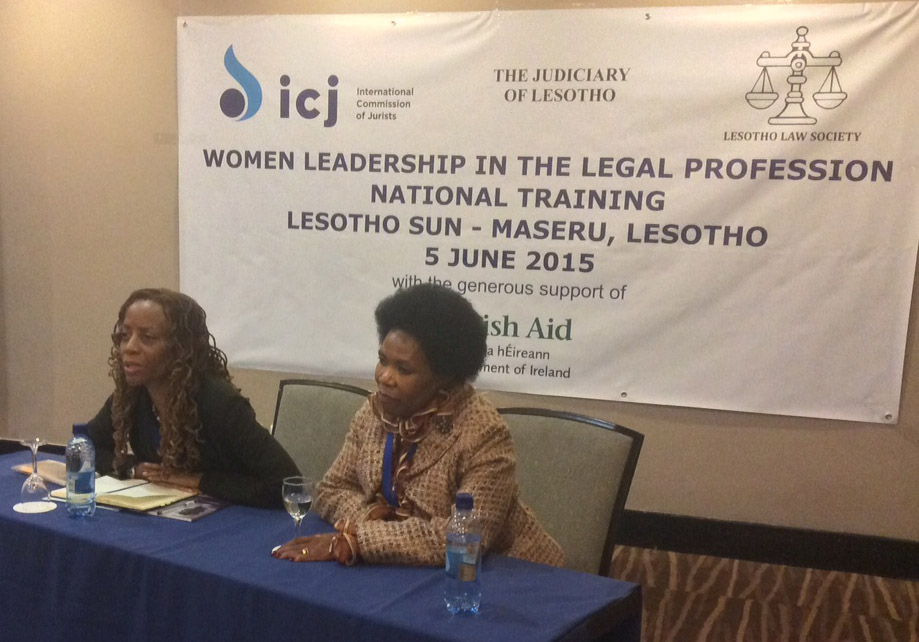
Jun 5, 2015 | News
Today, the ICJ convened its training on “Women lawyers making a difference through the Legal Profession” in Maseru. Thirty-five women participated in the event.
In many jurisdictions, men invariably dominate the legal profession and there is a necessity to interrogate the reasons for this.
The advancement of women has not been significant despite the fact that there is equality in numbers in enrolment in law schools.
There have been cited challenges and obstacles that have been raised by women lawyers for this lack of advancement, and these needed to be fully explored in order to adopt concrete recommendations to inform an adequate and effective response to the apparent inequalities.
In order to address this issue within the legal profession in Lesotho, the ICJ collaborated with the Judicial Service Commission and the Lesotho Law Society.
The training brought together 35 women including Chief Justice Majara, Judges, Magistrates, Lawyers and Human Rights Activists from Non-Governmental Organisations.
The main objective of the training was to provide a platform for the participants to engage in robust discussions on the systemic obstacles that affect the ascendancy of women to leadership positions and provide them with an opportunity to introspect and come up with plausible innovative solutions and identify opportunities for change.
Further, the training would address the gender gap in the legal profession and also interrogate possible capacity building initiatives for the participants, which will enable them to effectively advance women’s rights through various advocacy techniques.
In addition, the training also sought to provide an opportunity for the Judicial Service Commission and the Lesotho Law Society for dialogue on improving the situation of women in the legal profession, as well as contributing to the promotion and protection of women’s rights and access to justice.









